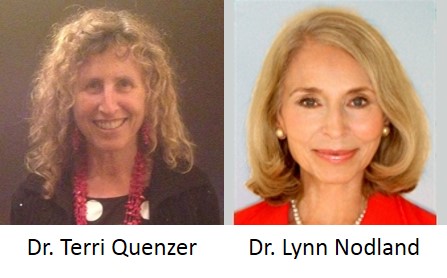A friend of mine recently asked me if I were to have given up only one animal-based food, which food would that be? That’s easy! Dairy!!! That means milk and anything that starts out as milk (cheese, yogurt, butter, ice cream, sour cream, etc.). Here’s why:
We are told by the dairy industry, which is backed by government-sponsored marketing that poses as public service announcements, that we must drink milk. Milk is even subsidized by the government, making it very affordable.
The dairy industry wants us to believe that cow's milk was specially designed for the human body, and that milk is natural for humans. Really?
Given what I've described here, how does it make any sense for us to drink milk or consume any of the products produced by milk, including cheese, yogurt, butter, cream, sour cream, etc.? Sure, those foods taste great. But to me, they're not worth consuming because my health is more important than taste alone. So if I were eating the standard American diet and I had to give up only one food, to me it’s a no-brainer. Dairy!
Milk: does it do a body good? ABSOLUTELY NOT!
- Milk originated with one purpose, to feed, nourish, and grow offspring. Cow’s milk was designed by nature to grow a 65-pound calf at birth to 1,000 pounds in about 18 months! So what do you think that milk does to us?
- Once able to eat solid food, infants are weaned from mother’s milk. That is, every animal except humans. We are the only animal that drinks milk into adulthood. Not only do we continue to drink milk into adulthood, we don’t even drink milk from our own species. We are the only species/animal to drink milk of another species/animal!
- Lactase, an enzyme our bodies produce to digest lactose sugar in milk, normally disappears after weaning. When lactase is gone, consuming dairy is likely to cause gas and pain. That's lactose intolerance. While lactase enzymes persist well into adulthood for many people, most stop producing lactase and develop lactose intolerance sooner or later. Mother Nature designed humans to be breast-fed, then to be weaned after infancy. In other words, we were not designed to drink milk and consume other dairy foods.
- We are constantly told that we need milk to get calcium in order to grow and make our bones healthy and strong. It’s true that we do need calcium. However, we are lead to believe that milk (and dairy) is the only food that gives us enough calcium.
But think about this: calcium is not produced by animals. Calcium comes from minerals found in rocks and soil that get taken up by plants. So, then, where do cows get their calcium? That’s right, cows get their calcium from the plants (grass) that they eat, which like all leafy green vegetables, is abundant in calcium.
- Since most dairy cows live out their milk-producing lives on factory farms, they are not grass fed, so they are not getting calcium in their diet, meaning that their milk lacks calcium. So how does that make milk our main source of calcium?
The cow’s feed is supplemented with calcium (and vitamin D). For that matter, you might as well just take a calcium supplement yourself. Or better yet, go straight to the source and get your calcium from leafy greens, broccoli, and other plant-based foods rich in calcium such as beans, oats, and even oranges.
- According to Michael Greger, MD, turning dairy cows into milk machines has led to epidemics of udder infections. Antiseptics used to disinfect cow teats have been found to boost the level of pus in the milk of cows with staph-infected udders. And research studies have found that we can taste pus in milk. Doesn’t that sound yummy!
- Milk proteins add acid to our blood, and mineralized calcium in our bones is our body’s only available resource that can neutralize the acids and prevent our blood from becoming acidic. Our bodies leach calcium from our bones to neutralize the acids, then excrete the calcium in our urine.
- With 74 grant-years of funding by the National Institutes of Health and publications in over 300 top, peer-reviewed scientific journals, T. Colin Campbell, PhD showed clear evidence that casein, the protein in cow’s milk, promotes cancer. His findings and those of colleagues, which are summarized in “The China Study”, all point to a link between milk (and other animal protein) and chronic degenerative diseases.
We are told by the dairy industry, which is backed by government-sponsored marketing that poses as public service announcements, that we must drink milk. Milk is even subsidized by the government, making it very affordable.
The dairy industry wants us to believe that cow's milk was specially designed for the human body, and that milk is natural for humans. Really?
Given what I've described here, how does it make any sense for us to drink milk or consume any of the products produced by milk, including cheese, yogurt, butter, cream, sour cream, etc.? Sure, those foods taste great. But to me, they're not worth consuming because my health is more important than taste alone. So if I were eating the standard American diet and I had to give up only one food, to me it’s a no-brainer. Dairy!
Milk: does it do a body good? ABSOLUTELY NOT!



 RSS Feed
RSS Feed